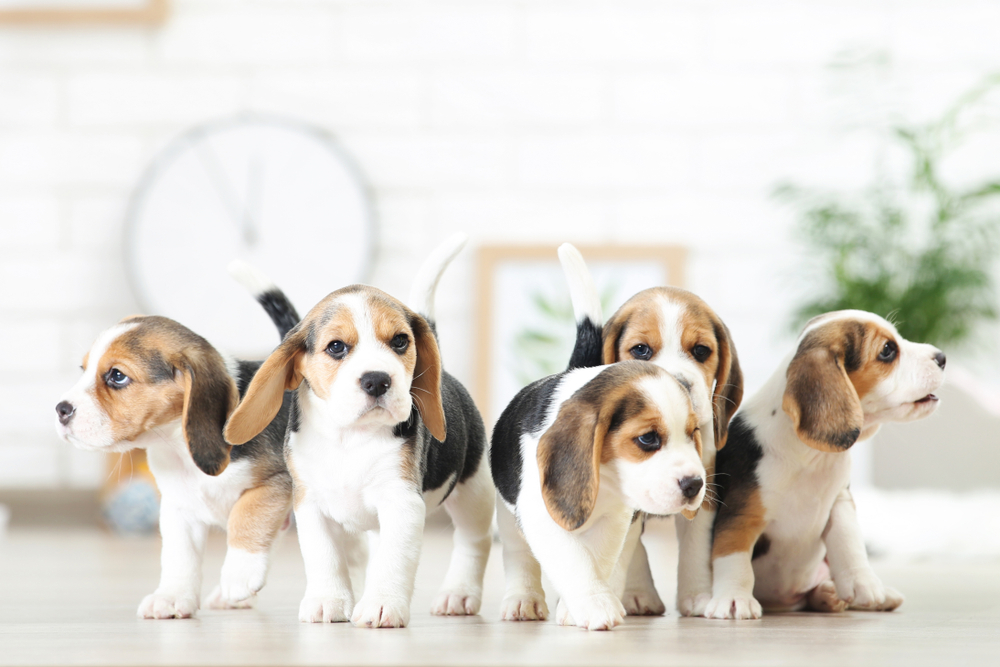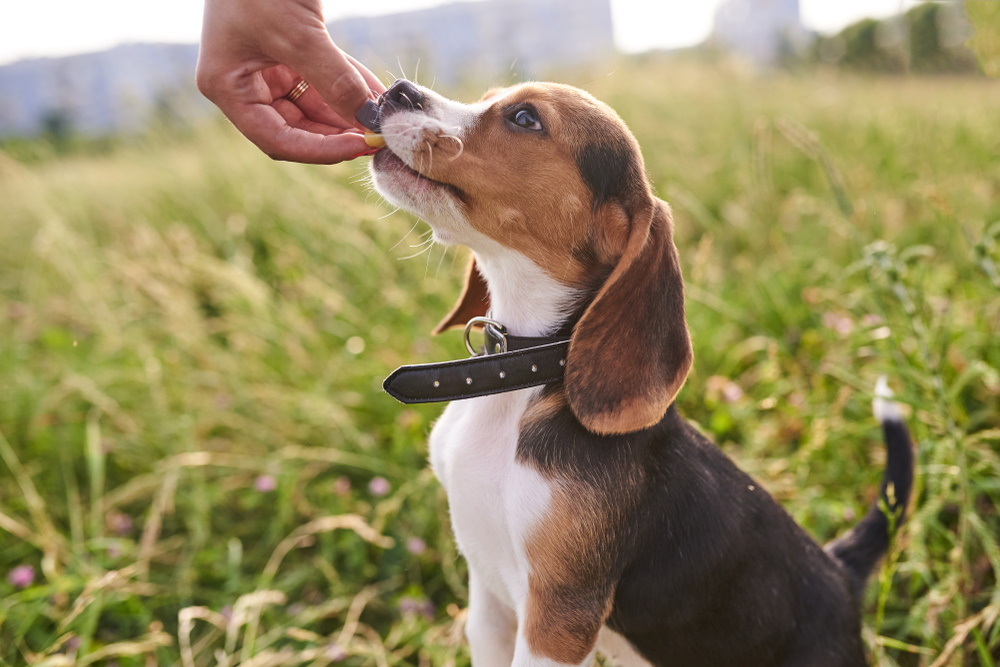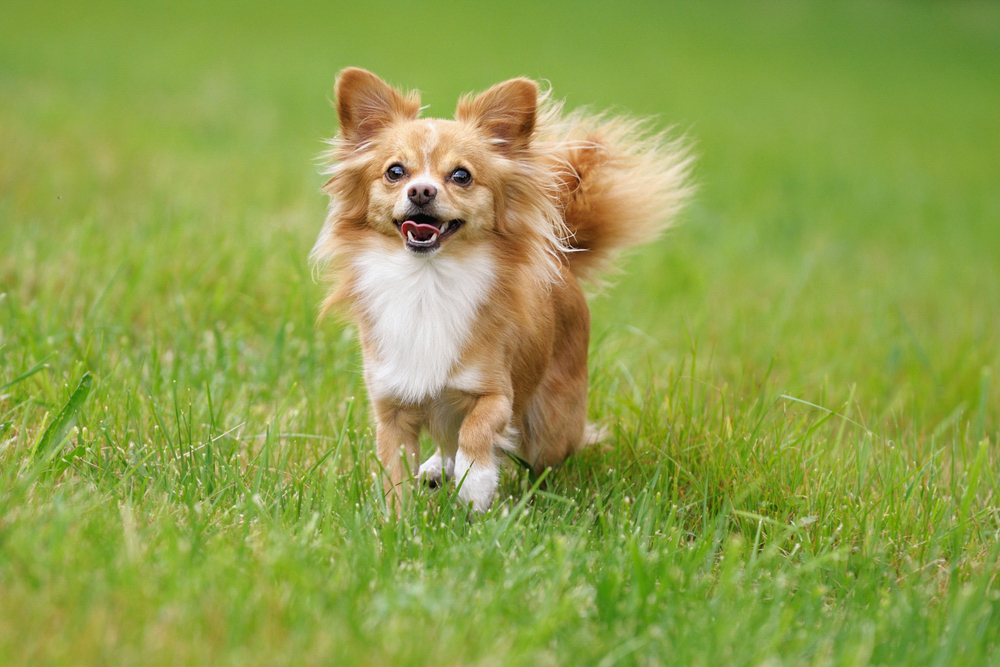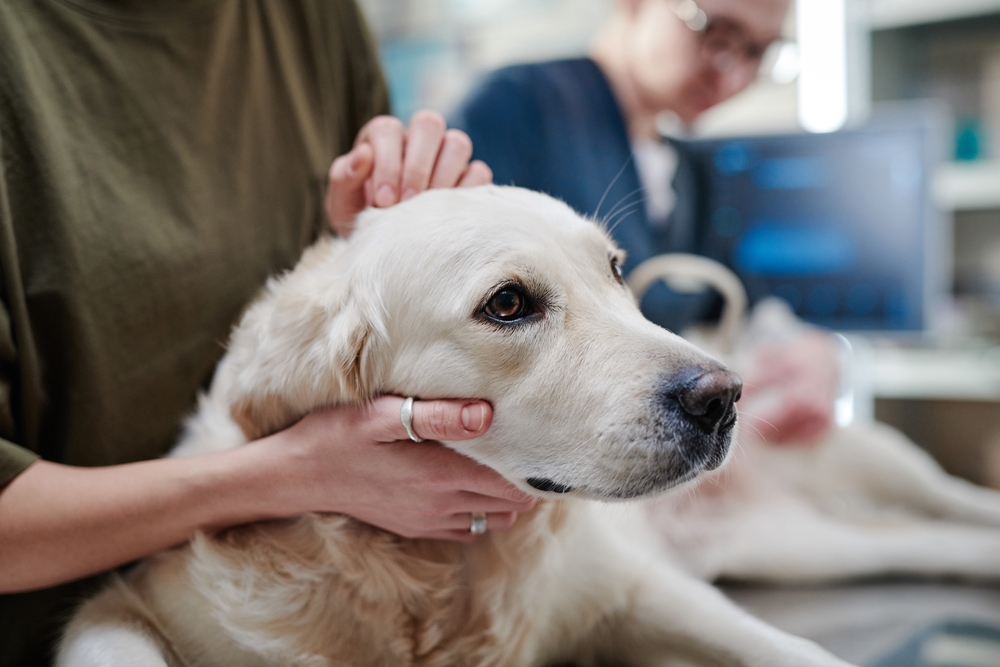Click to Skip Ahead
The Beagle is one of the world’s most beloved canines, and it’s easy to see why. They love people and enjoy human interaction and activity. They are curious, friendly, low-maintenance dogs, and they get along with other canines and kids. They are also energetic and intense in their play, and you may wonder when Beagles calm down.
The answer rests with training and socialization. The breed has a long history as a scent hound, so being active and vocal is second nature to them. However, dogs are malleable as puppies, making raising a calm, easygoing pet possible. Anecdotally, most Beagles calm down by the time they’re 2 years old.
The History of the Beagle
The ancestors of the Beagle can be traced back to the English, prior to the Roman’s arrival in 55 BC. They began life as rabbit hunters, a role the pup has retained in modern times. This job encouraged several traits in these dogs, such as their independence and ability to scent track. They have a strong prey drive and are tenacious in this role. Beagles also get along with other pups, being bred to hunt as a pack.
The American Kennel Club (AKC) recognized the Beagles in 1885. Knowing the dog’s history is essential for understanding your challenges and options to help your Beagle calm down and shed unwanted behaviors. Other factors to monitor include a high wanderlust potential and a tendency to bark or howl.

Puppy Development
Remember that your puppy may learn them from their parents and littermates. A vocal mother will teach her offspring by example to be loud. Puppies may also bark a lot to get attention. Nevertheless, these behaviors aren’t set in stone. You can modify your pup’s actions and reactions with proper training and positive reinforcement.
A reputable breeder won’t release puppies before they are 8 weeks old. They need this time with their mother and littermates to avoid learn social skills and improve confidence. The lessons don’t stop once you bring home your puppy. You should introduce your pup to novel experiences, other people, and dogs while young.
Research has shown that your dog’s social interactions can influence barking behavior. It’s worth noting that barking developed more for human-dog communication than between other canines. It’s often attention-getting behavior.
Exercise Needs
The Beagle is energetic and needs at least 1 hour of exercise daily. Exercise keeps them fit and provides mental stimulation and enrichment. After all, they are intelligent, making it necessary for their well-being. Beagles can’t tolerate being alone for hours on end, and they’re happier playing games with humans than playing alone.
The best way to calm down your Beagle is to tire them out with activity. It’s an excellent way to introduce interactive play with games of fetch or other field trial skills. It will also allow you to bond with your pet for a more fulfilling relationship.

Tips for Managing an Active Pup
Getting your pup on a schedule will make activity a regular part of their routine. Dogs learn the household schedule, particularly if you’re consistent. Try to walk or exercise your Beagle around the same time every day. Make sure to mix things up to keep the experience interesting. You can walk in the neighborhood one day, go to the doggie park on another, and hit the trails at another time.
Operant Conditioning
As active as Beagles are, they are also sensitive animals. They are affectionate pets and eager to please. Punishment and harsh words can be devastating to them. We suggest using positive reinforcement with operant conditioning to modify unwanted behaviors. This involves using rewards like treats to encourage wanted behaviors, like not barking when people visit, or another dog walks by your home.
Like most canines, Beagles are food-motivated. They have a high tendency for weight gain, giving you added motivation to keep them active. Nevertheless, that trait makes it easy to channel the pup’s behavior to the calm levels you prefer. We recommend reserving treats as training aids to increase their effectiveness.

Giving Your Beagle a Job
We suggest giving your pup a job to curb unwanted behavior. You can have them participate in competitive events to challenge your dog. Beagles are scent hounds. You can also use treats and other props for scent work that can tire your pet mentally while providing much-needed exercise. We like the idea of capitalizing on your dog’s natural abilities to improve their well-being and quality of life.
If you’re inclined to hunt, you’ll have a willing companion. After all, there’s a good reason why they are the AKC’s 8th most popular breed.
Joining the Pack
One of the criteria in the show ring is the Beagle’s behavior with the pack. Judges consider the dog’s actions as an individual and pack member. We suggest getting your pup used to being around other dogs early and providing opportunities to meet other pets, like cats.
These activities will likely encourage barking, but you can channel it to appropriate times with training. Sometimes, the best approach isn’t fighting a dog’s nature but finding better ways for them to express it.

Avoiding Separation Anxiety
It’s not wise to leave a Beagle alone for long periods. They may not enjoy it, setting the stage for separation anxiety, boredom, and destructive behavior. It will also create a formidable barrier for calming down your pet. You should get them used to you leaving for a few hours at a time when they are puppies. Giving them a nice treat or chew toy when you leave can help develop their independence.
Therefore, we strongly urge you to consider the time and effort you can devote to owning a Beagle. Some breeds are more tolerant of downtime than others. The Beagle isn’t one of them.
Final Thoughts
The Beagle is eager to play in the yard, fetch a ball, or hit the trails with you. Their high energy levels are an asset if you work with the pup’s physical and mental needs. When they’re around 2 years old, Beagles calm down, but most stay energetic for most of their lives. Look at their physical needs as something positive instead of something you must tame. The Beagle epitomizes the term canine companion and will gladly accompany you on any adventure.
Featured Image Credit: Przemek Iciak, Shutterstock













